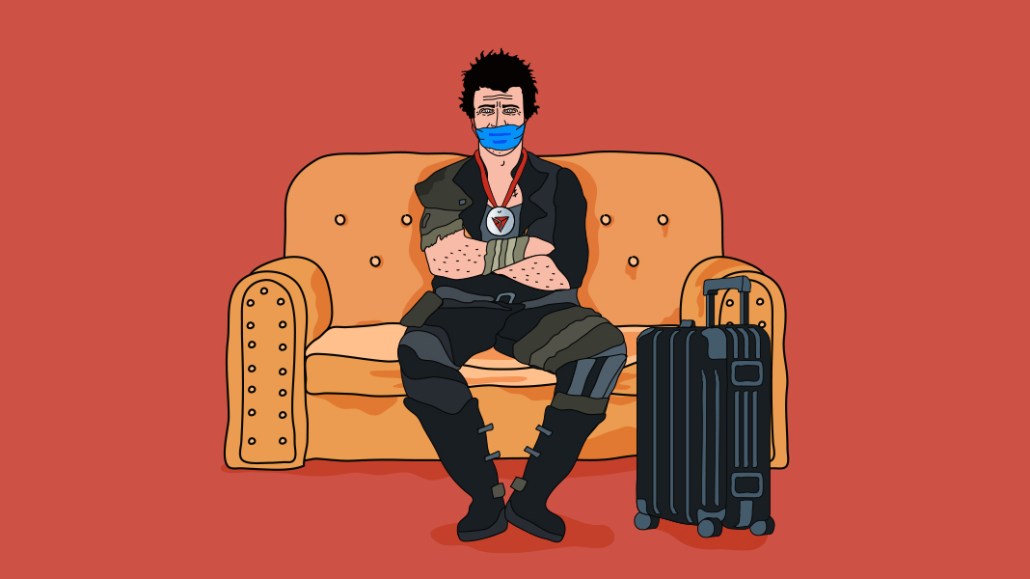Secure your place at the Digiday Media Buying Summit in Nashville, March 2-4
‘Dying to work’: With A-list talent sitting at home, publishers eye video collaboration opportunities with them

Nearly five months after much of the entertainment industry shut down, musicians still can’t tour and actors still can’t make movies or shows.
And with the country’s top entertainers going stir-crazy —and increasingly aware that no money is coming in the door —managers and agencies are more receptive than ever to pitches and discussions from publishers, sources at three different publications said.
“The talent is dying to work, they’ll work below their normal rates and they need ways to express themselves,” said the chief revenue officer of one digital media company.
The discussions, which typically focus on built-if-sold projects like virtual events or digital video series, are part of a long-term effort by media companies to move deeper into the entertainment space. But those same companies face stiff competition from platforms and brands vying for consumer attention; they even face competition from charities and nonprofits looking for ways to drum up support for their respective causes with content plays.
“My branding and influencer team is underwater right now with all the requests,” said Craig Rogalski, the managing agent at CK Talent, which represents film and television talent in both the United States and Europe.
At the beginning of the coronavirus crises — and the social unrest following the killing of George Floyd in the midst of it — publishers looking to work with celebrities ran into an issue not dissimilar to the ones they faced with advertisers: Many were reluctant to make anything that might be perceived as tone-deaf or insensitive to the moment, said Krystyn Price Harrell, Complex Networks’ head of talent booking.
And they were also worried about doing anything in-person out of concern for their health.
Those worries have since subsided somewhat, Price Harrell said, and in the past few weeks some talent have gotten more comfortable with the idea of shooting in person, provided social distancing guidelines are followed.
Certainly, the production challenges that have hampered film and TV crews remain in place for these projects. It is difficult to execute elaborate productions and remain socially distant. And some celebs, a second chief revenue officer said, remain less than comfortable with shooting content by themselves on their phones, or with a remote camera setup.
But just having the conversations, which might have been impossible to arrange five months ago, feels like a win to some. “They’re much more willing to play ball,” the first revenue chief said.
Despite the progress, the window for doing this kind of work with actors could snap shut soon. While many studios have pushed their productions into 2021, hundreds of film, TV and streaming productions have begun to ramp back up in California, and suddenly, actors who had been stuck inside with nothing to do are being told that production could resume soon, and that once they get the green light, shooting will begin immediately.
“I have to have my talent on call, like they’re emergency room doctors,” Rogalski said, adding that the coming logistical crush could be difficult for his agency’s booking team. “My team is kind of nervous about that.”
Top music talent could be available for longer. While it’s technically possible to produce unscripted television shows in a socially distant way, it could be months, if not longer, before people are comfortable packing themselves into night clubs or stadiums to watch their favorite artists. A number of top artists, ranging from Justin Bieber to Marshmello, have either canceled their 2020 tours or rescheduled them for the summer of 2021.
“I’m hearing more people say it’s more like 18 months,” an executive at one music talent agency said of the timeline for live music getting back to normal. “These days, people are talking about 2022.”
More in Media

From feeds to streets: How mega influencer Haley Baylee is diversifying beyond platform algorithms
Kalil is partnering with LinkNYC to take her social media content into the real world and the streets of NYC.

‘A brand trip’: How the creator economy showed up at this year’s Super Bowl
Super Bowl 2026 had more on-the-ground brand activations and creator participation than ever, showcasing how it’s become a massive IRL moment for the creator economy.

Media Briefing: Turning scraped content into paid assets — Amazon and Microsoft build AI marketplaces
Amazon plans an AI content marketplace to join Microsoft’s efforts and pay publishers — but it relies on AI com stop scraping for free.





